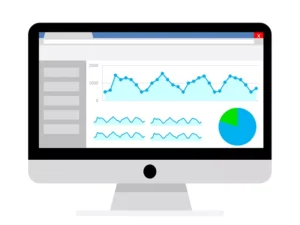How to Develop an Impactful, Data-Backed Digital Marketing Strategy
You may think that creating a solid digital marketing strategy is difficult, but it doesn’t have to be! With these simple tips, you can build an effective strategy to help your business grow.

Here’s a step-by-step guide to building a successful digital marketing strategy:
1. Know Your Digital Marketing Strategy Goals
Before you begin planning your digital marketing strategy, make sure you understand exactly what goals you’re trying to accomplish. Do you want to send traffic to your site? Increase sales? Grow your email list? Create brand awareness? Each goal requires different tactics, so you must first decide what you want before you can figure out what you need to do.
2. Start Small
Start small when it comes to your digital marketing efforts. Don’t try to launch a massive campaign right away. Instead, focus on one area at a time and slowly build up to more significant projects.
For instance, if you’re looking to boost your SEO rankings, start by focusing on one page of content. Once you’ve completed that project, move on to another.
Once you feel ready for something big, you can scale back your efforts and continue monitoring progress.
How to convert your website traffic
3. Set Up Your Google Analytics

Google Analytics is a free tool that lets you track visitors to your site and measure the effectiveness of your digital marketing efforts. There are many reasons to set up Google Analytics, including understanding how your audience interacts with your site, measuring conversions, and optimizing future strategies.
4. Use Keywords to Optimize Content
Keyword research is essential to finding relevant keywords for your content. When writing blog posts, articles, or ebooks, look for popular words in search engines that relate to your product or service.
Use keyword tools like the Google AdWords Keyword Planner to find related terms. These tools also allow you to test different variations of your key phrases to see which ones perform best.
Google AdWords Keyword Planner
5. Track Visitors Across Multiple Channels
It’s essential to know how visitors arrive at your site. For example, did they come directly from a social media post? Did they click on a link from an email? Or did they stumble upon your site organically?
In conclusion, any business must develop a data-backed digital marketing strategy. By understanding your audience and their needs, you can create targeted content and ads that resonate with them. Additionally, using analytics to track your results will help you fine-tune your campaigns and achieve the best possible ROI. So if you’re looking to make a bigger impact online, be sure to follow these tips! Or, reach out to us, and we’ll give you a hand.

